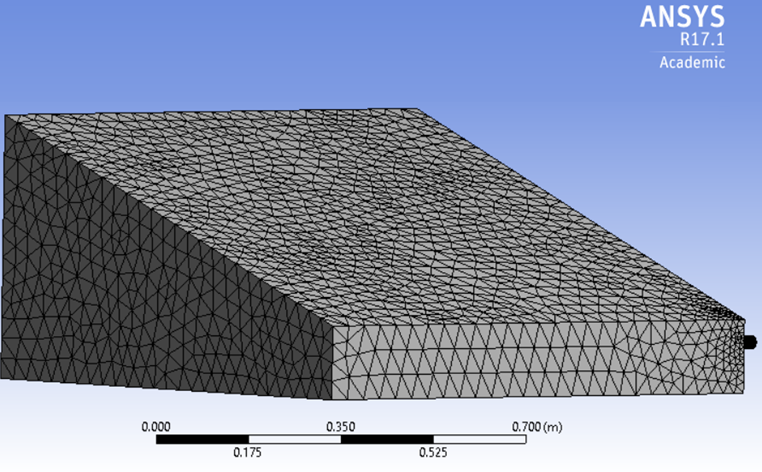 |
|
This study presents the design, modeling and behavior of a solar distiller using Computational Fluid Dynamics (CFD). The
measured parameters are: 1) behavior of the internal temperature, 2) cover and volume generated after the solar distillation
process, 3) the transfer coe cients obtained during the months of operation. The main results indicate that the month of May
has the highest average water temperature in the interior with 44 ºC and the highest production of distilled water with an average
of 1000 ml per day. The same month had an average of incident global radiation per day of 5.8 kWh / m2 which is the highest
among the months of operation. The model of Kumar and Tiwari is applied to study the thermal behavior of the solar distiller. In
order to determine the drinkability of distilled water, the water quality analyses were carried out, and it was found that the water
meets the NOM-127-SSA1-1994 standard. Thus, the clean water was obtained at the same time from the designed system under
real weather conditions.
Keywords: solar thermal energy, convection, heat transference, energetic balance.
|
|
 |

